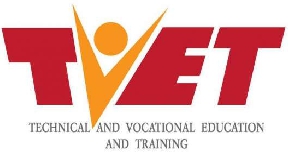 Technical Vocational Education and Training (TVET)
Technical Vocational Education and Training (TVET)
The National Vocational Training Institute (NVTI) was established with the noble aim of bridging the gap between formal education and industry needs.
However, despite efforts to enhance technical vocational education and training (TVET), significant challenges persist, as highlighted by recent developments.
In 2021, recognizing the importance of cohesive governance, the government under Nana Addo Dankwa Akufo-Addo sought to streamline TVET by consolidating all skills-providing institutions including all NVTI under the umbrella of Ghana Technical Vocational Education and Training (TVET) Service. This move ostensibly was to improve coordination and efficiency in the sector.
The first batch of Free TVET students under the Ghana TVET Service were admitted in 2021 and are now in their third and final year. However, since the inception of TVET, issues regarding the salary disparity within the TVET sector have been left in abeyance.
Despite some newly recruited staff in 2022, receiving TVET appointment letters, which old staff in the service hoped was the turning point to implementing the long-awaited new conditions of service in the Ghana TVET Service, employees continue to be paid salaries intended for NVTI which is now nonexistent due to the creation of Ghana TVET Service, the new mother body for all Technical and Vocational Institutions in the country, failing to reflect the upgraded status as TVET employees. This discrepancy is not only mind-boggling but also head-quaking when compared to the salaries of our colleagues at the Ghana Education Service (GES) with similar qualifications.
For instance, a first-degree holder employed in TVET receives a substantially lower salary of GH¢2160 compared to our counterparts in GES, who earn GH¢3400 for the same qualifications. This disparity is unjustifiable and undermines the efforts to attract and retain skilled professionals in the TVET sector.
Moreover, beyond the financial aspect, TVET employees face challenges in asserting their grievances. Intimidation tactics and victimization, abuse of office and power, mostly from the Principals, discourage the staff from speaking out against the unfair treatment they endure at the various campuses. This stifles their ability to advocate better working conditions and fair compensation.
The repercussions of these disparities are profound, extending beyond the workplace to impact employees' ability to provide for their families and educate their children. The frustration and despair expressed by TVET employees underscore the urgent need for action to address this injustice.
How can contact hours for employees be increased from 8 am to 4 pm but such employees cannot receive or benefit from an improved condition of service? This is ill-treatment of workers. Employees cannot toil in vain.
In light of these circumstances, it is imperative for stakeholders, including the government, policymakers, and civil society, to prioritize the welfare of TVET employees. Immediate steps should be taken to rectify the salary disparities and ensure that TVET professionals receive equitable compensation to commensurate with their qualifications and contributions.
Furthermore, mechanisms must be established to protect employees from intimidation, vindictiveness, and abuse of office and power in the system. A congenial and conducive environment for dialogue and advocacy is highly expedient at this critical moment. Only through collaborative efforts can Ghana fulfill its commitment to inclusive development and provide every citizen with their fair share of the national cake.